
Sir Walter Nash was a New Zealand politician who served as the 27th prime minister of New Zealand in the Second Labour Government from 1957 to 1960. He is noted for his long period of political service, having been associated with the New Zealand Labour Party since its creation.

Sir Arnold Henry Nordmeyer was a New Zealand politician and Presbyterian minister. As a member of Parliament (MP) he played a crucial role in the Labour Party, serving from 1935 to 1969. He served as minister of finance (1957–1960) and later as leader of the Labour Party and leader of the Opposition (1963–1965). Although he was a prominent statesman, Nordmeyer never ascended to the role of prime minister.
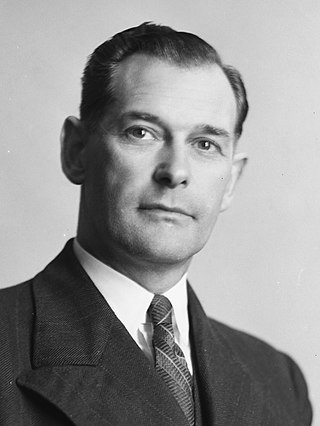
The 1963 New Zealand general election was a nationwide vote to determine the shape of New Zealand Parliament's 34th term. The results were almost identical to those of the previous election, and the governing National Party remained in office.

The 1966 New Zealand general election was a nationwide vote to determine the shape of the New Zealand Parliament's 35th term. It saw the governing National Party win a third consecutive term in office. It was also the first time since the 1943 election that a minor party won a seat in Parliament.
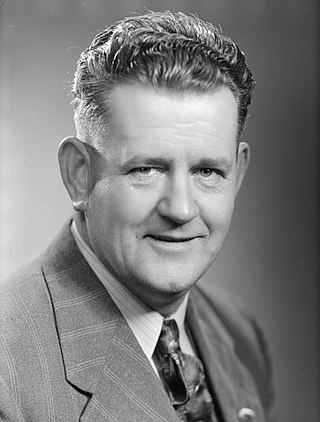
Hugh Watt was a New Zealand politician who was a Labour member of Parliament and the acting prime minister of New Zealand between 31 August and 6 September 1974, following the death of Prime Minister Norman Kirk. He had been the fifth deputy prime minister of New Zealand since 8 December 1972. Watt later served as high commissioner to the United Kingdom.

In New Zealand, the term Black Budget refers to the government budget of 26 June 1958, in which Minister of Finance Arnold Nordmeyer increased taxes on beer, tobacco, cars and petrol.
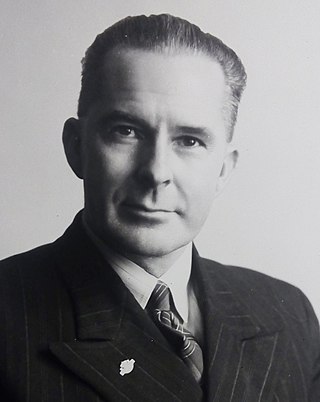
Clarence Farrington Skinner, commonly known as Jerry or Gerry Skinner, was a Labour politician from New Zealand, the third deputy prime minister of New Zealand between 1957 and 1960, and a minister from 1943 to 1949 and 1957 to 1960 in the First and Second Labour governments.

Frederick Hackett was a New Zealand politician of the Labour Party. He was a minister in both the First and Second Labour Governments of New Zealand and later the deputy leader of the opposition.

Michael Moohan was a New Zealand politician of the Labour Party. Seldom known to anyone by anything other than "Mick", he was a major organisational figure in the Labour Party's early history and went on to become a significant politician in his own right as an MP and cabinet minister.

Allan "Martyn" Finlay was a New Zealand lawyer and politician of the Labour Party. He was an MP in two separate spells and a member of two different governments, including being a minister in the latter where he reformed the country's justice system.
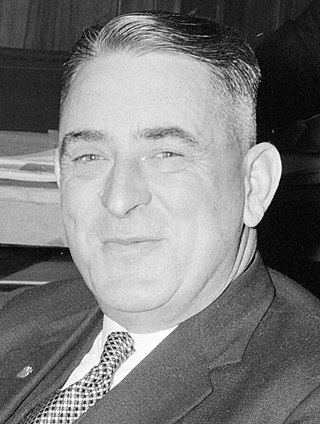
Philip George Connolly was a New Zealand politician of the Labour Party.
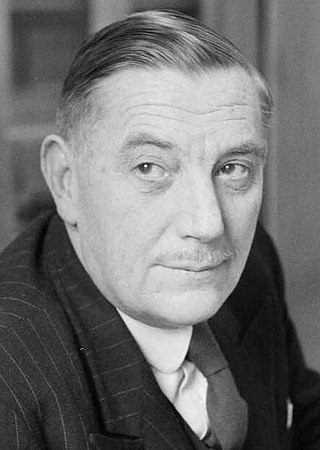
Raymond Boord was a New Zealand politician of the Labour Party.

William Arthur Fox was a New Zealand politician of the Labour Party, and a Cabinet minister in the Second Labour Government of 1957–1960.
James Gladstone Edwards was a member of parliament for Napier, in the North Island of New Zealand.
The Grey Lynn by-election 1963 was a by-election held in the Grey Lynn electorate in Auckland during the term of the 33rd New Zealand Parliament, on 18 May 1963.
The 1965 New Zealand Labour Party leadership election was held on 9 December 1965 to determine the future leadership of the New Zealand Labour Party. The election was won by Lyttelton MP Norman Kirk.

The 1974 New Zealand Labour Party leadership election was held on 6 September 1974 to determine the eighth leader of the New Zealand Labour Party. The election was won by Tasman MP Bill Rowling.

The 1951 New Zealand Labour Party leadership election was held on 17 January to choose the fifth leader of the New Zealand Labour Party. The election was won by Hutt MP and incumbent deputy-leader Walter Nash.

The 1954 New Zealand Labour Party leadership election was held on 23 June 1954 to determine the future leadership of the New Zealand Labour Party. The election was won by Hutt MP Walter Nash, the incumbent leader.

The deputy leader of the Labour Party is the second-most senior politician within the Labour Party in New Zealand. The officeholder deputises for the leader of the Labour Party at party-specific events. Unlike other political party leaders, the Labour Party's leader does not have the power to dismiss or appoint their deputy; both the leader and deputy are elected. In all cases where the leadership is vacant, the deputy leader shall also serve as acting leader until a new leadership election. When the Labour Party forms the Official Opposition the deputy leader typically serves as deputy leader of the Opposition.















